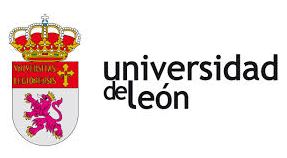Rapid identification of Rhodococcus equi by a PCR assay targeting the choE gene
Investigation article published in Journal of Clinical Microbiology
July 1st, 2003
The actinomycete Rhodococcus equi is an important pathogen of horses and an emerging opportunistic pathogen of humans. Identification of R. equi by classical bacteriological techniques is sometimes difficult, and misclassification of an isolate is not uncommon. We report here on a specific PCR assay for the rapid and reliable identification of R. equi. It is based on the amplification of a fragment of the choE gene encoding cholesterol oxidase. The choE-based PCR was assessed by using a panel of strains comprising 132 isolates from different sources and of different geographical origins, all initially identified biochemically as R. equi, and 30 isolates of representative non-R. equi actinomycete species, including cholesterol oxidase producers. The expected 959-bp amplicon was observed only with R. equi isolates, as confirmed by sequencing of a variable region of the 16S RNA gene from a random sample of 20 PCR-positive isolates. All R. equi isolates gave a positive choE-based PCR result, which correlated with a high degree of conservation of the choE gene. Three of the 132 strains originally identified as R. equi were negative for the choE gene, and subsequent analysis of their 16S RNA gene sequences confirmed that they belonged to other bacterial species (Dietzia maris, Mycobacterium peregrinum, and Staphylococcus epidermidis). All non-R. equi isolates were negative by the choE-based PCR. ATCC 21387, the only known isolate of Brevibacterium sterolicum, gave a 959-bp amplicon whose DNA sequence was virtually identical to that of R. equi choE. Comparison of the 16S RNA genes indicated that ATCC 21387 should be considered an R. equi isolate
Ladron N., Fernandez M., Aguero J., Gonzalez-Zorn B., Vazquez-Boland JA. and Navas J.
 | Departamento de Sanidad Animal. Facultad de Veterinaria. Universidad Complutense (UCM). |
 | Servicio de Zoonosis de Transmisión Alimentaria y Resistencia a Antimicrobianos (ZTA). Centro de Vigilancia Sanitaria Veterinaria (VISAVET). Universidad Complutense (UCM). |
 | Facultad de Medicina. Universidad de Cantabria (UC). |
 | Grupo de Patogénesis Molecular Bacteriana. Facultad de Veterinaria. Universidad de León. |
| Servicio de Microbiología. Hospital Universitario Marqués de Valdecilla (HUMV). | |
| Veterinary Molecular Microbiology Section. Faculty of Medical and Veterinary Sciences. University of Bristol. | |

